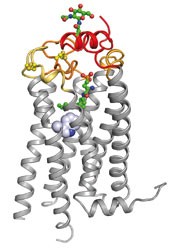
- Select a language for the TTS:
- UK English Female
- UK English Male
- US English Female
- US English Male
- Australian Female
- Australian Male
- Language selected: (auto detect) - EN
Play all audios:
Charlotte Brontë was born in 1816, the year before Jane Austen died. So much had literary fashion moved on, that to her Romantic eyes Austen seemed superficial. She told the publisher
William Smith Williams who gave her _Emma_: “She does her business of delineating the surface of the lives of genteel English people curiously well; there is a Chinese fidelity, a miniature
delicacy in the painting …Her business is not half so much with the human heart as with the human eyes, mouth, hands and feet.” It might be assumed that the politics of these two great
female writers would be dissimilar. They were separated not only by temperament, but social position. Jane Austen was connected to the aristocratic world by birth. Charlotte Brontë and her
sisters worked as much put-upon governesses. Yet like Jane Austen, Charlotte Brontë was a Tory. Her love of the Duke of Wellington meant that when she visited London in 1850, one of her
greatest treats was to go to the Chapel Royal at St James’s Palace, to see the idol of her youth pass by. Visiting Harriet Martineau in the Lake District and being asked to comment on her
new book, _History of England during the Thirty Years of Peace, _Charlotte looked up with tears in her eyes, and said “thank you for justice to this man”. Wellington inspired the secret
world of Angria, that was her apprenticeship for authorship. Nevertheless, it would be misleading to suggest that Charlotte had the reverence for tradition that being a Tory has tended to
imply. She was not a natural fit for the party. Even as a teenager she thought the bowdlerisation of Shakespeare — to allow women to read him — preposterous. Her entire oeuvre was an attack
on what John Stuart Mill had described as the “exaggerated self-abnegation which is the present artificial ideal of feminine character”. It was promoted by the Evangelical movement which
saw women as agents of moral reform. Charlotte Brontë’s heroines, like those of Jane Austen, champion what Professor Jeremy Black has called Austen’s “romantic individualism”. However, being
born over a generation later meant there was now a large section of educated society that admired female individualism, and took it for granted. The expansion of the franchise moved what
was known as the Woman Question to the top of the agenda for Victorian England, morphing into a widespread concern about women’s rights. _Jane Eyre_ came out the year after Queen’s College,
Harley Street, was founded. The school was the bridgehead of the female education movement, reflected in the poetry of Elizabeth Barrett Browning and Tennyson in “The Princess”. Charlotte
was a dedicated Anglican, but her publishers begged her to cut the first scene in _Shirley_ because, like the portrait of Mr Brocklehurst in _Jane Eyre_, it undermined the Church of England.
With the 1848 revolutions on the continent, the Brontë sisters were suddenly viewed as dangerous radicals. That much-praised bestseller _Jane Eyre_ now appeared to be one of “the many
blows…aimed at our institutions, political and social”. To this Charlotte responded, with her usual vigour, that she would cut nothing. In the preface to a new edition she airily noted:
“Conventionality is not morality.” Like so many of its members, Charlotte Brontë, too, might have come to grief with the Tory party over Brexit. For there was no greater champion of Brussels
than she. All Charlotte’s books have a Belgian theme, from _The Professor_ to _Jane Eyre_ and _Shirley_. Perhaps her greatest novel, _Villette,_ is actually set there. All her heroes,
especially Mr Rochester, are really portraits of her Belgian mentor, the school master Constantin Heger. As she wrote: “Belgium! name unromantic and unpoetic, yet name that whenever uttered
has in my ear a sound, in my heart an echo, such as no other assemblage of syllables, however sweet or classic, can produce. Belgium! I repeat the word, now as I sit alone near midnight. It
stirs my world of the past like a summons to resurrection.” In today’s world, would the new political party, Change UK, be closest to Charlotte’s ideas? At least they include some of
her beloved Tories. Crucially, they wish to remain in the EU, for Charlotte longed to stay in Brussels. But ultimately, perhaps she would have supported Theresa May’s deal. She herself
reluctantly recognised her destiny lay away from Belgian allurements, in solid English Yorkshire. She was in any case worried about being seduced by continental corruption — above all, Roman
Catholicism.






![[withdrawn] inspecting early years providers after a risk assessment](https://www.gov.uk/assets/static/govuk-opengraph-image-03837e1cec82f217cf32514635a13c879b8c400ae3b1c207c5744411658c7635.png)
